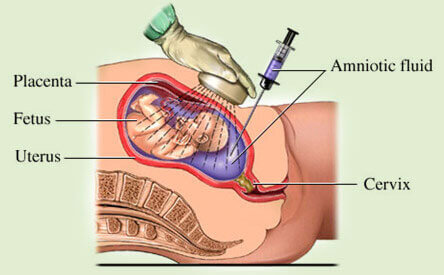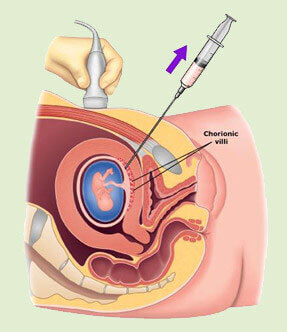Amniocentesis is a procedure in which a small amount of amniotic fluid surrounding the baby is aspirated via a fine needle inserted under ultrasound guidance through the mother’s abdomen and tested for chromosomal abnormalities like Down syndrome., Edward’s syndrome and Patau syndrome.
The safest time to have an amniocentesis is from 16 weeks onwards. However, due to its invasive nature, amniocentesis carries the risk of miscarriage (0.1-0.3%) and is recommended only for women whose fetus has significant risk of genetic disorders.
It takes up to 2 weeks for the results to be available. If a disorder is diagnosed, you will be given the relevant information and ample opportunities to discuss with us what options are available.

Chorionic villus sampling (CVS) is a prenatal test that also helps detect chromosomal abnormalities and a host of other genetic disorders including cystic fibrosis, sickle cell disease and Tay-Sachs disease. Cells are taken from the placenta via a needle inserted through the abdomen under local anaesthesia and ultrasound guidance and sent to a lab for genetic analysis.
The main advantage of CVS over amniocentesis is that it can be performed earlier—generally from 11 weeks onwards so you can find out about your baby’s condition sooner. The miscarriage rate associated with CVS is higher (0.5 to 1%). Results are usually available within 2 weeks.

Do you have questions about women’s
health and pregnancy?
Let us help you.